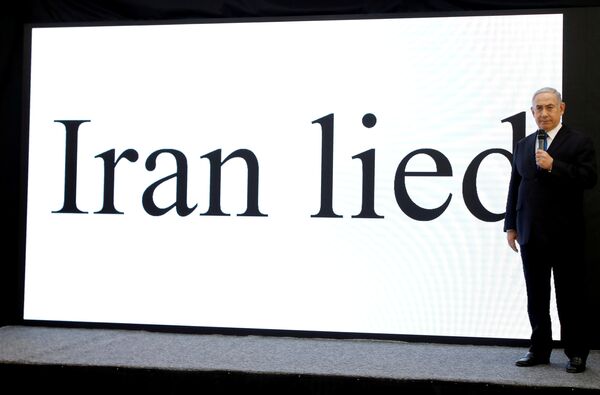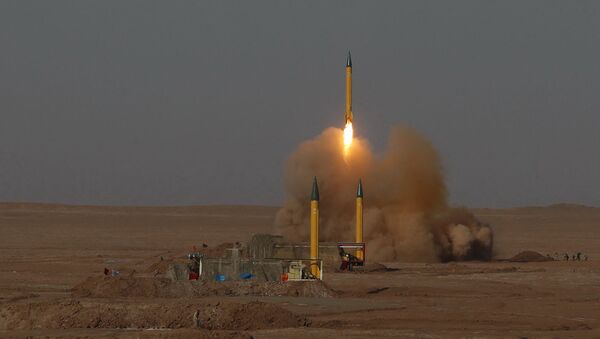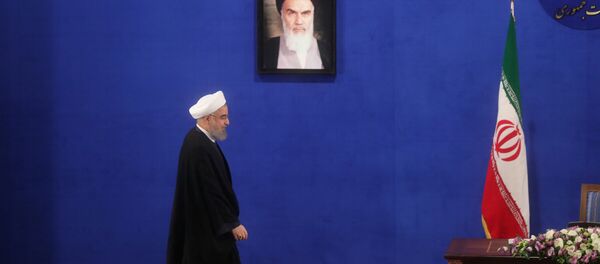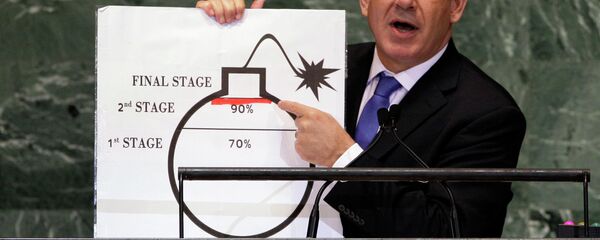Sputnik: What role could Secretary Boris Johnson play in dissuading President Trump from backing out of the Iran deal? Could he be more successful than Mr. Macron or Mrs. Merkel in this endeavor?
Moritz Pieper: Boris Johnson of all people is unlikely to dissuade the Trump administration more than any other officials. Johnson, we have to remember, is a career politician who has proven before that he is willing to sacrifice policies to politics. [Emmanuel] Macron and [Angela] Merkel already met President Trump just recently. They publically said it wasn't their purpose to dissuade Trump to back out of the Iran deal, though we can assume that was public posturing. So of course Iran figured high on their agendas.
The Joint Comprehensive Plan of Action (JCPOA) has successfully closed the lid on a very pressing nuclear proliferation crisis. If Trump does not recertify to Congress that Iran abides by this deal, it would constitute a violation of the deal. That's what it says in paragraph 26. It will be a violation of the deal and we can only hope that Congress would call out Trump for violating this agreement and resist imposing sanctions.

Sputnik: What options would Tehran have if the US were to pull out of the deal?
Moritz Pieper: Iran would likely no longer see itself bound by its terms, because the United States would have violated it first. This would then lead to the collapse of the JCPOA because the Europeans, China and Russia cannot uphold it alone without Iran.
Trump's claims that the deal paves the way to an Iranian nuclear weapon in ten years – we remember the controversy around the sunset clauses – is based on a flawed analysis of the monitoring mechanisms that are in place. After those sunset clauses Iran will be treated as a normal Non-Proliferation Treaty signatory. We have to remember that Iran signed the NPT, and after these sunset clauses it will be treated like any other NPT member. This is a fundamental difference to, let's say North Korea, which has left the treaty. This is often disregarded in the discussion.

Sputnik: In light of Israel's so-called secret nuclear files, what are your expectations regarding the decision that Mr. Trump is going to take when the deadline on the Iranian deal expires?
Moritz Pieper: Undoing the legacy of your predecessor doesn't make for good policies. Trump's unrealistic demands that Congress and America's European partners fix the 2015 JCPOA is setting the United States up to violate the deal, as I've said before.
So this is nothing new. IAEA officials have confirmed that this is all material that they have seen. It has reconfirmed in ten reports that Iran is abiding by the terms of the 2005 JCPOA. Of course Trump sees himself as reconfirmed by these so-called secret nuclear files, but that's only because he doesn't know the specifics of the Iranian nuclear file, or he deliberately distorts the evidence.

Moritz Pieper: If he fails to renew the sanctions waivers, this would be a clear violation of a multilaterally negotiated nuclear deal with Iran that has successfully managed to close the lid on a very urgent, very pressing international non-proliferation crisis.
Withholding these waivers would be dangerous; it would set up the United States to violate the deal, possibly risk a nuclear crisis emerging yet again, and tear up a nuclear agreement that has verifiably restricted Iran's nuclear activities.
Dr. Moritz Pieper is a lecturer in international relations at the University of Salford in Manchester, whose PhD research focused on non-Western foreign policies toward the Iranian nuclear program. The views and opinions expressed by Dr. Pieper are those of the expert and do not necessarily reflect those of Sputnik.




